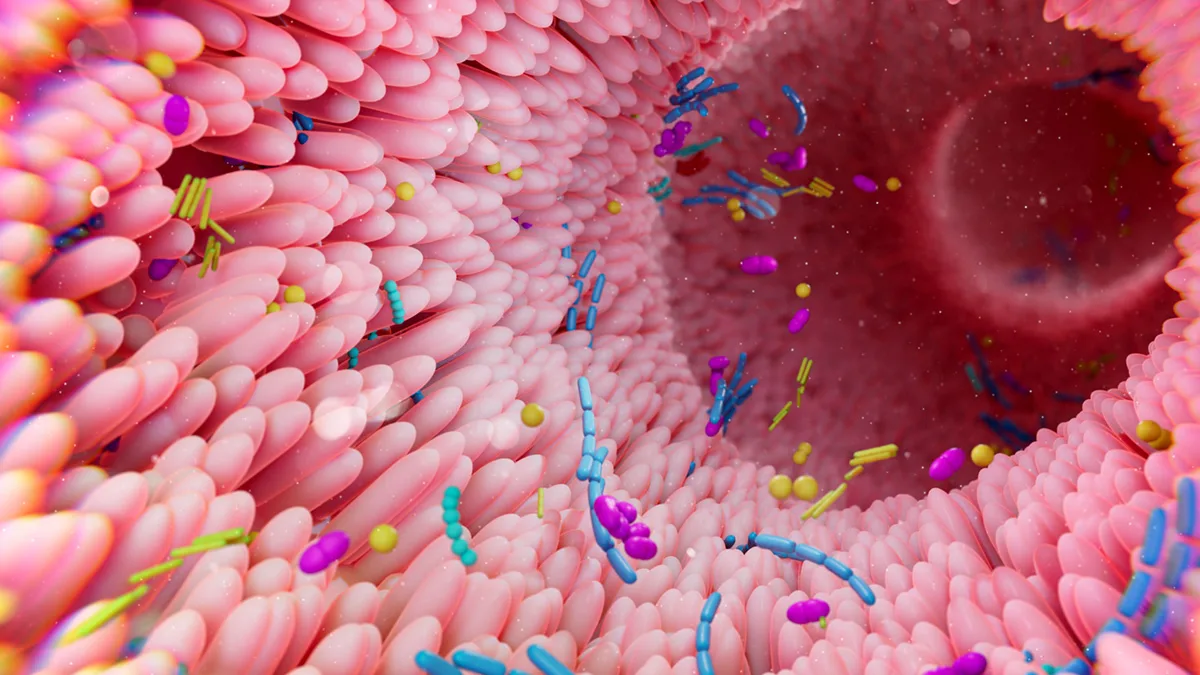
Overview
The successful treatment of patients with IBD, such as ulcerative colitis or Crohn's disease, might be transformed by Insilico’s ISM5411.
Insilico Medicine’s ISM5411, discovered with generative AI, poised for early studies in patients with IBD
Researchers at Insilico Medicine achieved a groundbreaking milestone to design a first-in-class therapy for patients with inflammatory bowel disease (IBD). Having proved itself in preclinical studies, the company’s promising oral drug candidate ISM5411, designed in less than a year with generative artificial intelligence (AI), has entered early human studies.
While newer biologic drugs can help patients with moderate to severe IBD achieve a reduction in their symptoms, these treatments have a high rate of failure. The successful treatment of IBD, such as ulcerative colitis and Crohn's disease, has been hindered by an insufficient response in most patients.
Insilico’s ISM5411 might transform treatment for IBD.
In December 2024, Insilico published pivotal preclinical research in Nature Biotechnology showing that ISM5411 restored intestinal barrier function and alleviated gut inflammation in multiple animal models of experimental colitis.
"It is very rare to see an IBD drug work in several preclinical models. We tested the gut-restricted PHD1/2 inhibitor in pretty much every model of IBD that we could find, and it worked well in all of them," said Alex Zhavoronkov, PhD, Founder and CEO of Insilico. "It took under 12 months to get from program initiation to preclinical candidate nomination. This achievement highlights that generative AI in drug discovery is not just hype — successful programs can be produced time and time again."
The Clinical Challenge of IBD
More than 6.8 million individuals around the world suffer from moderate to severe IBD and are most likely to initiate treatment with advanced therapies, particularly biologic treatments. As many as 60 to 85 percent of patients receiving biologics, however, experience an inadequate response. More effective therapies are clearly needed.
IBD is characterized by a loss of integrity of the gut epithelium, causing leakiness of the intestinal lumen into the surrounding gut tissue and leading to microbial infiltration, immune activation and chronic inflammation.
Standard IBD therapies have not been developed to resolve gut inflammation at the cellular level — often referred to as "histologic healing" or "histologic remission" — but rather to ease symptoms and restore patients' quality of life.
Histologic remission is characterized by restoration of the gut epithelial barrier, tissue repair and reduction of immune cell infiltration into the gut tissue. It reduces the long-term risk of relapse, hospitalization, colorectal cancer and the need for IBD surgery. New therapies that have histologic remission as a goal would therefore be the most effective treatments for IBD.
Using AI to Design a New IBD Drug
The Insilico team set out to identify new targets for IBD therapeutics using generative AI. Using the company’s proprietary PandaOmics AI tool, they identified the PHD1/2-HIF1-alpha signaling axis as a top potential target.
PHD1/2 is a versatile protein involved in several biological processes, including aging and regeneration, and PHD1/2 inhibition leads to intestinal mucosal barrier repair. Previous attempts to assess this target in IBD, however, have failed, with high doses of the molecules leading to adverse side effects.
Insilico used its generative AI system to design novel PHD1/2 inhibitors that work in the gut but do not enter the bloodstream. After the molecule does its work, it is excreted.
Using the comprehensive generative chemistry engine Chemistry42, the team designed ISM5411. Preclinical data show that in addition to restoring intestinal barrier function and alleviating gut inflammation in mouse models of colitis, ISM5411 exhibited favorable safety and pharmacokinetic profiles.
"If you look at the guts of mice with IBD with and without the drug, you would surely want to be the mouse on the drug," said Zhavoronkov. In a very clear visualization of the treatment’s efficacy, excised colon tissue from mice with colitis treated with ISM5411 show a striking resolution of the gross inflammation and colon shortening associated with IBD.
Phase 1 clinical trials of ISM5411 in healthy individuals in Australia and China recently ended, with data expected in early 2025. Insilico then plans to conduct global multicenter proof-of-concept efficacy studies in patients with ulcerative colitis.








